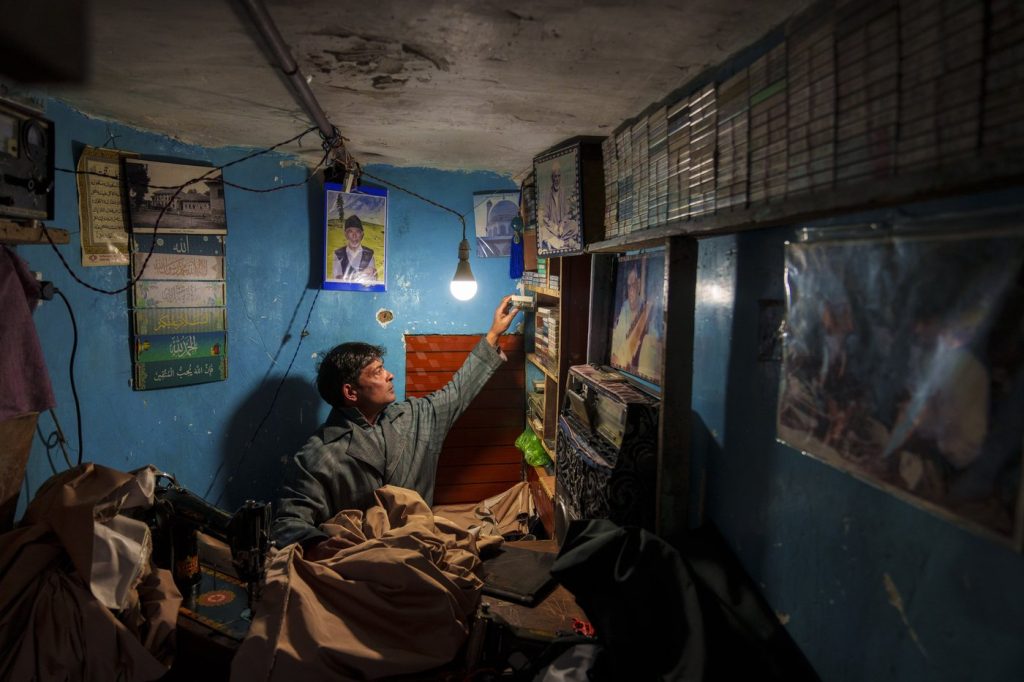In Srinagar, India, Farooq Ahmad Shaksaaz, a Kashmiri tailor, revives the nostalgic sounds of the past with his vintage 1970 Sharp cassette player. As he sews, the cassette player crackles to life, allowing the ethereal voice of the revered Sufi musician Ghulam Ahmad Sofi to permeate his shop. Shaksaaz, who inherited a passion for local Sufi music and a meticulously maintained collection of cassette tapes from his grandfather, embodies a dwindling yet devoted community that holds cassette tapes in high esteem for archiving and listening to the Sufi music of Indian-controlled Kashmir.
Sufi music in Kashmir—a heartfelt reflection of spirituality and emotion—has been customary for quite some time, notably influenced by local and Central Asian Muslim saints. These sounds are sought after by locals as a means of spiritual guidance, particularly during difficult periods marked by unrest, such as street battles and security clampdowns. Traditionally, families have gathered around the warm buzz of a cassette player to experience the deep, soul-stirring poetry of Sufi saints, often accompanied by Kashmiri instruments like sarangi and santoor. Even in contemporary society, much of this music is recorded solely on cassette tapes, a format that dominated from the 1970s to the 1990s.
Despite the rise of digital music platforms, many Kashmiris insist that cassette tapes offer a unique listening experience. "There is something unique about this machine that for me plays recordings of spiritual guides," said Abdul Ahad, a carpet weaver, emphasizing the sacred ritual of pressing play on a cassette player. Those who cherish Sufi music often believe that digital formats blur the distinct instrumental sounds, with cassette players preserving the authenticity of each note.
However, as cassette tapes age and the music industry shifts towards digital streaming, the once-ubiquitous cassette players face obsolescence. Many families have had to part with their players due to mechanical failures, and there are challenges in preserving precious cassette collections, some containing rare recordings that span generations. To safeguard these recordings, some collectors are digitizing their old tapes for future preservation.
In Srinagar, the main city of the Kashmir Valley, only a handful of shops still sell tape recorders or blank tapes, and skilled repair technicians are in short supply. Among these mechanics is Mohammad Ashraf Matoo, a self-taught technician dedicated to keeping these vintage machines operational, despite the declining availability of spare parts. Matoo salvages components from non-functional recorders and even fabricates certain parts himself to ensure his customers' devices continue to work. Depending on the brand and condition, a repaired tape recorder can fetch between $150 and $850.
For Shaksaaz, maintaining the legacy of cassette tapes represents a "personal mission," as he seeks to keep the connection to his spiritual and cultural roots alive in an increasingly modernized world. The tactile engagement of handling cassette tapes creates a deeply personal listening experience, serving as a bridge to the past while navigating contemporary shifts. The community's dedication to this unique format exemplifies a commitment to preserving and honoring their rich musical heritage amidst changing times.










